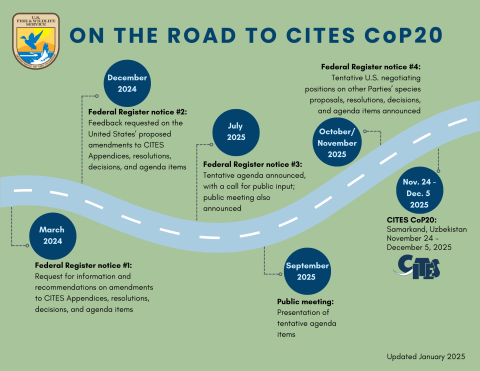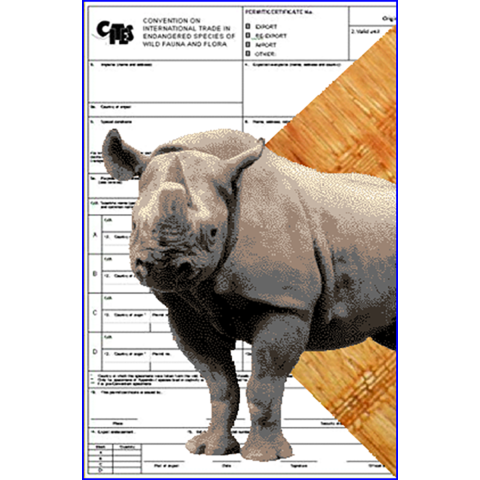The United States is one of 185 Parties, which includes 184 member countries and the European Union, that has agreed to implement the treaty to help control global over-exploitation of wildlife and the conservation of species.
What We Do
Our Services
The U.S. Fish and Wildlife Service’s International Affairs program coordinates domestic and international efforts to protect, restore, and enhance the world’s diverse wildlife and their habitats with a focus on foreign and domestic species of international concern. We envision a world where all people value nature and conserve living resources for the well-being of life on Earth.
Under the Endangered Species Act (ESA), the International Affairs program carries out the provisions of CITES through its Division of Management Authority and Division of Scientific Authority.
Our Projects and Initiatives
International wildlife trade is a billion-dollar industry involving hundreds of millions of live plants and animals, as well as their products. CITES provides a framework for cooperation and collaboration by its Parties to regulate and sustain trade while ensuring it does not threaten species' survival in the wild.
A meeting of the Conference of the Parties takes place approximately every three years to discuss and negotiate changes to CITES Appendices and the implementation and enforcement of the treaty. The 20th meeting of the CoP (CITES CoP20) is being held in Samarkand, Uzbekistan from Monday, November 24 to Friday, December 5, 2025. For additional information, please visit the CITES Secretariat's related Notification to the Parties 2024.
CoP20: Samarkand, Uzbekistan - November 24-December 5, 2025
Sustaining Species
Sustainable, legal use of wild animals and plants is better for both domestic and global economies than unchecked illegal trade, which can drive species and associated markets to extinction. CITES establishes agreed upon rules the Parties use to reciprocally protect the trade of one another's species, and combat wildlife trafficking. Species are listed on Appendices that determine the level of trade that can be supported. Advisory committees use their expertise and specialized knowledge to review the status of species and provide guidance on CITES implementation.
More Than a List
CITES works through a system of permits. A permit is required to import or export a CITES-listed species, whether a live specimen, part, product, or pet. Moving a listed species across international borders is considered trade, even if it’s for personal use.
A permit may be issued when the Service determines that a species was acquired legally, and that its trade is not detrimental to its survival in the wild.
Permits for some species that are exported in large quantities are issued in partnership with states and Tribes through the CITES Export Program.
The Future of Conservation
As part of the United States’ effort to combat wildlife trafficking, our International Affairs program supports professionals working to advance and implement CITES policies in their countries through the CITES Master's Course.







